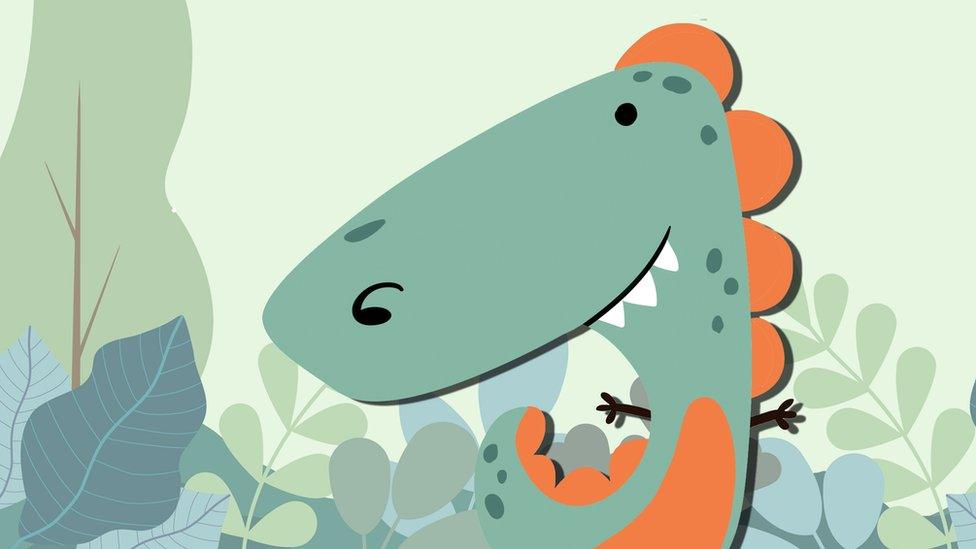Dinosaur with a big nose discovered on Isle of Wight
- Published
- comments

A dinosaur with a nose that would make a rhinoceros jealous has been discovered on the Isle of Wight!
Named Brighstoneus simmondsi, after the village of Brighstone on the English Island, close to where its fossil was first found.
The new species was identified by a former GP and long-time dinosaur enthusiast, Dr Jeremy Lockwood.
"For years we've only seen two types of dinosaur on the Isle of Wight..." he said.
"I was convinced that subtle differences between bones would reveal a new species, so I set out to measure, photograph and study the anatomy of each bone."
Dr Lockwood made his discovery in the archives of the Natural History Museum
Dr Lockwood was so sure that there was another species of dinosaur, he decided to search through the Natural History Museum's massive collection of fossils to see what he could find.
He explained, "I've seen dinosaur bones that are reportedly from the same species, but I've been baffled as to why they would look so different."
After four years of searching through lots of boxes of bones, Dr Lockwood was able to reconstruct the skull of a dinosaur that had been in storage since 1978.
But there was something different about this reconstructed skull that made it stand out from the other fossils in the archive.
To Dr Lockwood's delight, he realised that the skull belonged to a dinosaur with a very large nose!
And this is how the nasally-blessed dinosaur was identified.
He believes the Brighstoneus simmondsi's original discovery was overlooked in 1978 as it was first found next to a meat-eating dinosaur called Neovenator salerii which had grabbed researchers' attention.
Dr Lockwood, who is now studying palaeontology at the University of Portsmouth, advised future dinosaur hunters to go to "the basement of a museum rather than the field" if they wanted to find a new species of their own.
What do you think of the dino discovery? Let us know in the comments!
- Published11 August 2020
- Published17 May 2019
- Published5 June 2018
